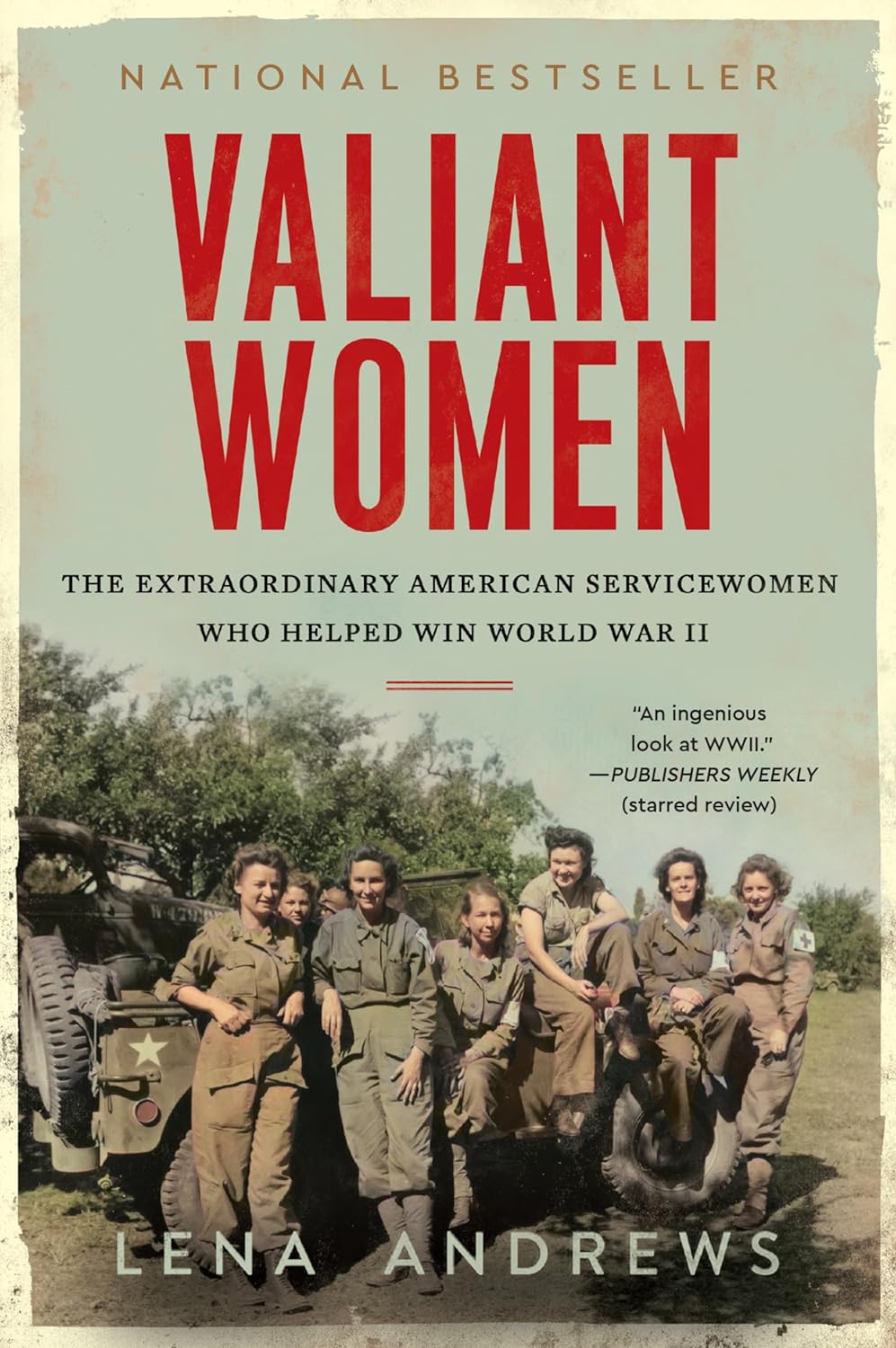Summary | Excerpt | Reviews | Beyond the Book | Readalikes | Genres & Themes | Author Bio

The Extraordinary American Servicewomen Who Helped Win World War II
by Lena S. Andrews
The loss, however, had done little to temper Hitler's seemingly endless ambitions. He quickly moved to advance on Yugoslavia, Greece, and Crete, only to then turn his attention to the Soviet Union, where he began a grueling assault on his former ally. The Italians, similarly undeterred by some early missteps in North Africa, were reinforced in that theater by the formidable German Afrika Korps, under the infamous "Desert Fox," Erwin Rommel. The British, spread too thin and struggling to prioritize, found themselves unable to keep up with the growing scope of the conflict. They waited, impatiently, for the United States to meaningfully commit trained men to fighting on the ground.
As the war spread to farther-flung corners of the globe, both Jackie Cochran and Nancy Love were aware that airpower was only growing in importance. Over the course of several months, the war had become truly global, crossing through dozens of borders, climates, and terrains. Many people, including most of the leaders in the US Army, understood that airpower had the unique capability of seamlessly crossing these varied thresholds.
As 1942 unfolded, Love and Cochran watched closely when the Army, recognizing the important role that airpower was playing on the battlefields in Europe and the Pacific, elevated its Air Corps to a semiautonomous organization within its ranks. The new organization was called the Army Air Forces—the predecessor to today's independent Air Force—and it consolidated all American air pilots and air assets under a single chain of command. Cochran and Love had also heard the pleas from politicians and military commanders for increased aviation resources, including Roosevelt's public demands for more planes. They had watched male pilots sign up to serve, noting that they often received a direct assignment to the Army Air Forces, their flying skills at a premium. They had seen many of the remaining men enroll as instructors and civilian ferrying pilots, contracted with the Army to move the surge of planes from manufacturing facilities to bases and, eventually, to the field. They had heard rumors about the WAAC and had seen the legislation moving through Congress. And they both wondered, to themselves and to their high-placed friends, could they find a way for women to fly too?
Though motivated by the same vision of establishing a women's flying corps within the Army, Love and Cochran took very different approaches to the task. Cochran quickly found her way to the ear of General Arnold, the senior air commander in the Army and freshly appointed head of the Army Air Forces. For several months, Arnold rebuffed her requests to begin setting up a women's flying corps, insisting that existing manpower and training rates would be sufficient to meet the Army Air Forces' needs. He did assure Cochran, however, that if the time came for a women's pilot organization, she would be asked to develop and command it.
As Cochran worked the upper echelons of the American flying establishment, Love had insinuated her way into a lower-ranking but still powerful element of that same community, Air Transport Command (ATC), the hub of the Army Air Forces' flying in the United States. ATC was responsible for two primary missions: airlifting equipment and personnel into the field and ferrying military aircraft from manufacturing plants to bases around the country. By 1941, ATC was dealing with an exponential increase in demand for its services, and, within a year, they needed more pilots than even existed in the Army Air Forces. In the immediate aftermath of Pearl Harbor, they had hired over 3,500 civilian pilots to fill the gap, but they still struggled to keep up. Within weeks of her introduction to the command's senior leaders, Love had convinced ATC commander Brigadier General Harold George that women pilots could help ease the burden of transporting aircraft around the country, freeing up men for other duties. Overwhelmed by the sudden swell of aircraft and the limited number of pilots qualified to move them around the country, he jumped at the idea.
Excerpted from the book VALIANT WOMEN: The Extraordinary American Servicewomen Who Helped Win World War II by Lena Andrews. Copyright © 2023 by Lena Andrews. From Mariner Books, an imprint of HarperCollins Publishers. Reprinted by permission.
Your guide toexceptional books
BookBrowse seeks out and recommends the best in contemporary fiction and nonfiction—books that not only engage and entertain but also deepen our understanding of ourselves and the world around us.